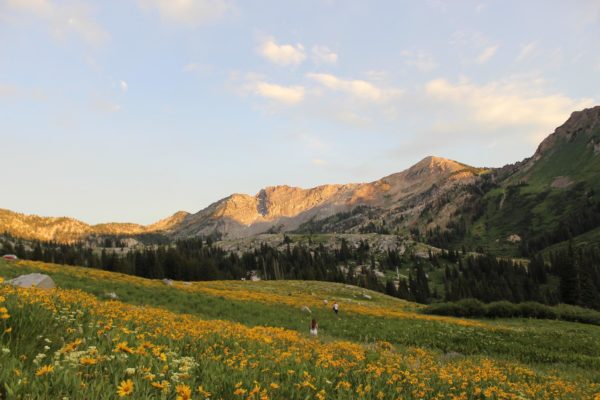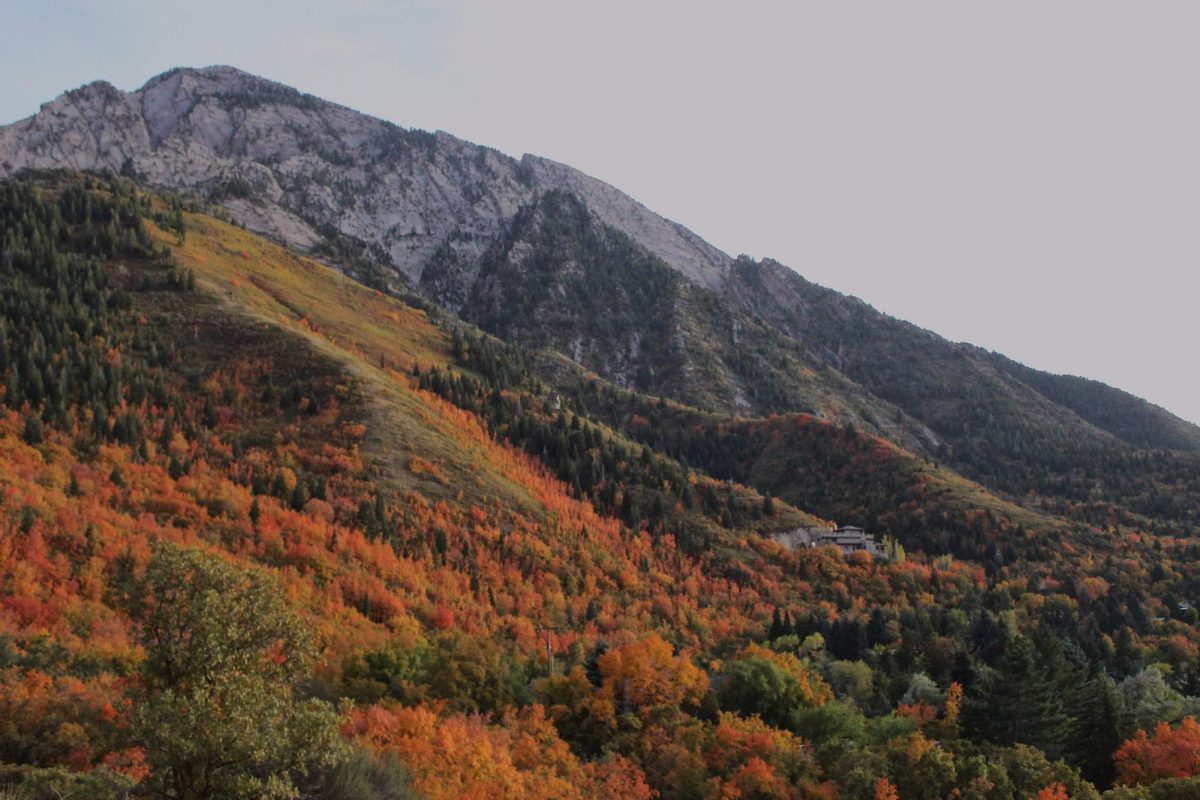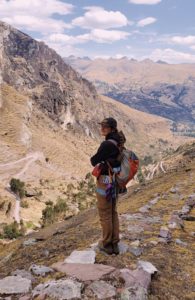You might think that spending every day of my childhood staring at the base of Mount Olympus would numb me to its grandeur—— that after seeing it so often I would forget to notice it entirely and walk the streets of Salt Lake with my head down and eyes distracted, subjecting this mountain to the unnoticed edges of my periphery. Instead, I find myself constantly marveling at the way the light catches its face during different parts of the evening and noticing the way the snowmelt dyes the trees on the west slabs the deepest green in early June.
It appears I am no more accustomed to the beauty of this peak now than I was the first time I saw it as a kid. Each time I follow the ridgeline up to the sky I am surprised and startled, despite having lived in this area for over 22 years. Growing up with the Wasatch Range in my backyard has been the biggest gift. And it is one I continue opening every time I open my front door.
I recognize, however, that not everyone has the privilege of finding themselves at a trailhead after a mere five minute drive from their home. In fact, an estimated 100 million of us don’t have outside spaces near where we live and roughly one in three Americans don’t have easy access to the outdoors (REI).
There are a few things those of us afforded this privilege can do to take action. The first is to get involved in making these spaces more accessible to the people in communities outside of our own. Recently I spent just two minutes messaging members of Congress to encourage them to pass the Outdoors for All Act, a piece of legislation which funds projects expanding outdoor recreational opportunities for people living in low income and disadvantaged communities. You can easily find more information about this act as well as pre-written letters and emails for congress members by googling how to pass the Outdoors for All Act.
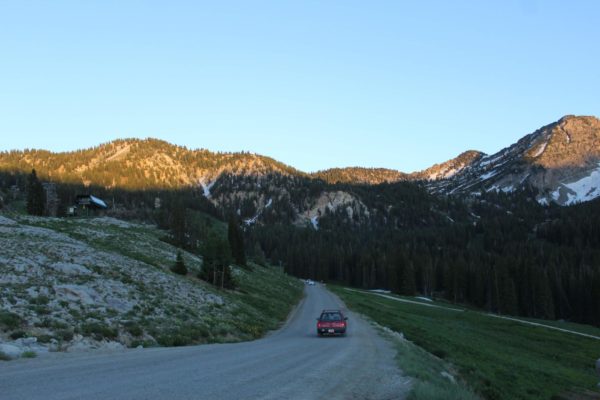
Do me a favor and take a couple minutes to do so now. Not in five minutes when you finish this article (or in 10 if you just remembered you forgot to switch your laundry) but right now. Here, I’ll even give you some nice space at the end of this paragraph to ease your conscience and demonstrate that now really is a good breaking point.
Glad to have you back.
The second thing you can do to take action is just as easy and I think you’ll find it even more enjoyable: actively appreciate where you are. Start small by simply noticing the landscape around you, the way the mountains demand your attention. Talk about it. Point it out to those around you. Help them realize this privilege of ours is one we must refuse to take for granted and one we can never afford to lose.
I said “actively” appreciate where you are because while I think verbally expressing gratitude is powerful and important, there’s nothing like saying thank you with your hands. Grab a water bottle and a notebook and go for a hike. Take a couple friends or a furry companion, or better yet, go alone! Say thank you to the mountains by venturing inside of them.
Whatever you decide to do, grab your backpack and car keys and get going. (But maybe finish this article first).
Don’t think your outdoor expression of gratitude has to be something huge or grand in order to “count.” You don’t need to go on a multi day backpacking trek or find an intense climbing route to appreciate what you have. (Unless you feel pulled to do so, then by all means, don’t let anyone or anything stop you). Remember that even just a few minutes spent breathing in mountain air is good for the mind. Find time to get outside and look up and around. Doing so just might help you look inside yourself too.
Additionally, if you’re feeling the pull to get outside intensify, don’t fall into the trap of thinking you need to be more outdoorsy than you already are before trying all those things you’ve been thinking about doing. You don’t have to be an experienced hiker or climber or have the best mountain bike to enjoy the wonders of the Wasatch. Start with what you have and where you are now, but do start!
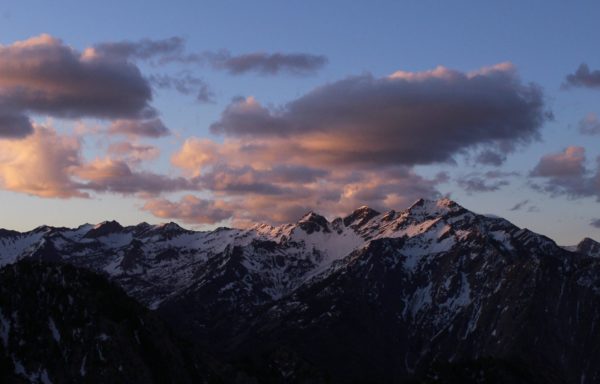
To help you on your next adventure, here are a few of my favorite underrated short hikes in Salt Lake you can do after work or class:
#1 Rattlesnake Gulch up to Pipeline Overlook in Millcreek Canyon. This trail has gotten me through so many seasons of life. The winding switchbacks present you with beautiful views of the surrounding mountains before spitting you out onto a flat trail perfect for running. Coming in at just under 3.5 miles with only 600+ feet of elevation gain, this easy hike is great for an active and therapeutic end to the day. It can also easily be extended by continuing on the pipeline trail to connect with grandeur peak.
#2 Bear Canyon Bridge via Bonneville Shoreline Trail in Draper, Utah. The day one of my close friends shared this spot with me changed me forever. I’ve had so many meaningful conversations with friends and family on this easy trail. This hike is short and relatively flat, but the views are wonderful. You’ll find the trailhead adjacent to a church parking lot just east of Wasatch Boulevard. After walking on a paved trail for a few hundred yards, turn left to dive into the trees for a few minutes before things open back up to give you a view of the valley. The suspension bridge at the end is big and a bit shaky for some, but holds a great sunset view. You can easily finish this 3.3 mile trail in less than 90 minutes, or continue past the bridge for more.
#3 Neffs Canyon! This place is unreal. Nestled in a neighborhood adjacent to Millcreek Canyon, Neffs offers you a stunning front row seat to Mount Olympus from the parking lot. (The kind of view I mentioned at the beginning of this article). If you only have 15 minutes to get away, wandering around the loop and bringing a blanket to sit on in the basin is for you. For years I’ve loved driving myself up to Neffs to watch the light from golden hour ignite the face of Olympus. It consistently amazes me how accessible this jaw-dropping view is. Depending on when you go, plan a few extra minutes to find parking because the lot is small and crowded during warm evenings. If you have a few hours and want a more strenuous hike, follow the trailhead up as far as you like for a more challenging route. This hike is also great for snowshoeing in the colder months.
